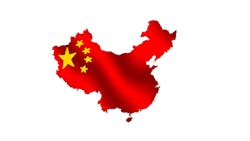China's economy grew at its weakest for almost a quarter of a century in 2014, official data showed Tuesday, with authorities describing slower expansion as the "new normal" and analysts tipping further deceleration this year.
The 7.4% announced by the National Bureau of Statistics (NBS) was slower than the 7.7% seen in 2013, but exceeded the median forecast of 7.3% in an AFP survey of 15 economists.
Growth in the world's second-largest economy during the final quarter came in at 7.3% year-on-year, the NBS said, matching the previous three months and beating the 7.2% median forecast in the AFP survey.
"China's economy has achieved stable progress with improved quality under the new normal in 2014," NBS chief Ma Jiantang said. "However we should also be aware that the domestic and international situations are still complicated and economic development is facing difficulties and challenges."
The full-year result, the worst since 3.8% recorded in 1990, comes after one of the pillars of the global economy was hit by manufacturing and trade weakness as well as declining prices for real estate, which has hammered the key property sector.
Beijing had set an official target of "about" 7.5% for last year. The goal is traditionally pegged at a level that is easily achieved, and is usually approximated to provide room for positive spin just in case it is missed.
The 2014 result is the first miss since 1998, during the Asian economic crisis.
Economists were largely upbeat on the results, but said they did not alter the outlook for further slowing this year. "The 2014 GDP result is better than market expectations and barely missed the target," ANZ economist Liu Li-Gang told AFP. "This result is not too bad."
For this year, the economists in the AFP survey see a median 7% expansion.
In its latest World Economic Outlook update, released Tuesday, the International Monetary Fund projected even slower growth this year, of 6.8%.
Unemployment at 5.1%
China overtook Japan as the world's second-largest economy in 2010 and the NBS said its GDP reached 63.65 trillion yuan (US$10.24 trillion) at 2014 prices last year. That remains far behind the US 2013 GDP which was estimated by the World Bank at $16.8 trillion.
Ma dismissed suggestions that China has overtaken the global number one on a purchasing power parity basis, saying such calculations "may have underestimated China's price levels and overestimated its GDP."
The NBS also said industrial production, which measures output at factories, workshops and mines, accelerated to rise 7.9% year-on-year in December from 7.2% in November.
Retail sales, a key indicator of consumer spending, also grew at a slightly faster 11.9% in the same month.
Fixed asset investment, a measure of government spending on infrastructure, expanded 15.7% on-year for the whole of 2014, weakening from the 15.8% recorded for the first 11 months of the year.
Despite the slowdown last year, authorities say they intend to stick to the path of transforming the economy into one where growth is increasingly driven by consumer spending rather than big ticket investments, and emphasizing quality of expansion over size.
Premier Li Keqiang has said slowing growth is no worry so long as job growth in the world's most populous country does not suffer.
Ma, the NBS chief, said the bureau's "internal survey rate" for unemployment in 2014 was about 5.1%, but refused to provide a comparative figure for the previous year.
Authorities last year did not take an entirely hands off approach to the growth slowdown, implementing a series of targeted measures analysts described as "mini-stimulus." And in November the central People's Bank of China cut interest rates for the first time in more than two years to try to put a floor on the slowdown.
Li told China’s State Council, or Cabinet, on Monday that authorities would strike a balance between stabilizing growth and pushing structural reforms in 2015, state media reported.
"As the global economy is undergoing a deep restructuring and slow recovery, China's government will likely face heavy tasks in tackling the difficulties," he said, according to the official Xinhua news agency.
- Fran Wang
Copyright Agence France-Presse, 2015
About the Author
Agence France-Presse
Copyright Agence France-Presse, 2002-2025. AFP text, photos, graphics and logos shall not be reproduced, published, broadcast, rewritten for broadcast or publication or redistributed directly or indirectly in any medium. AFP shall not be held liable for any delays, inaccuracies, errors or omissions in any AFP content, or for any actions taken in consequence.
